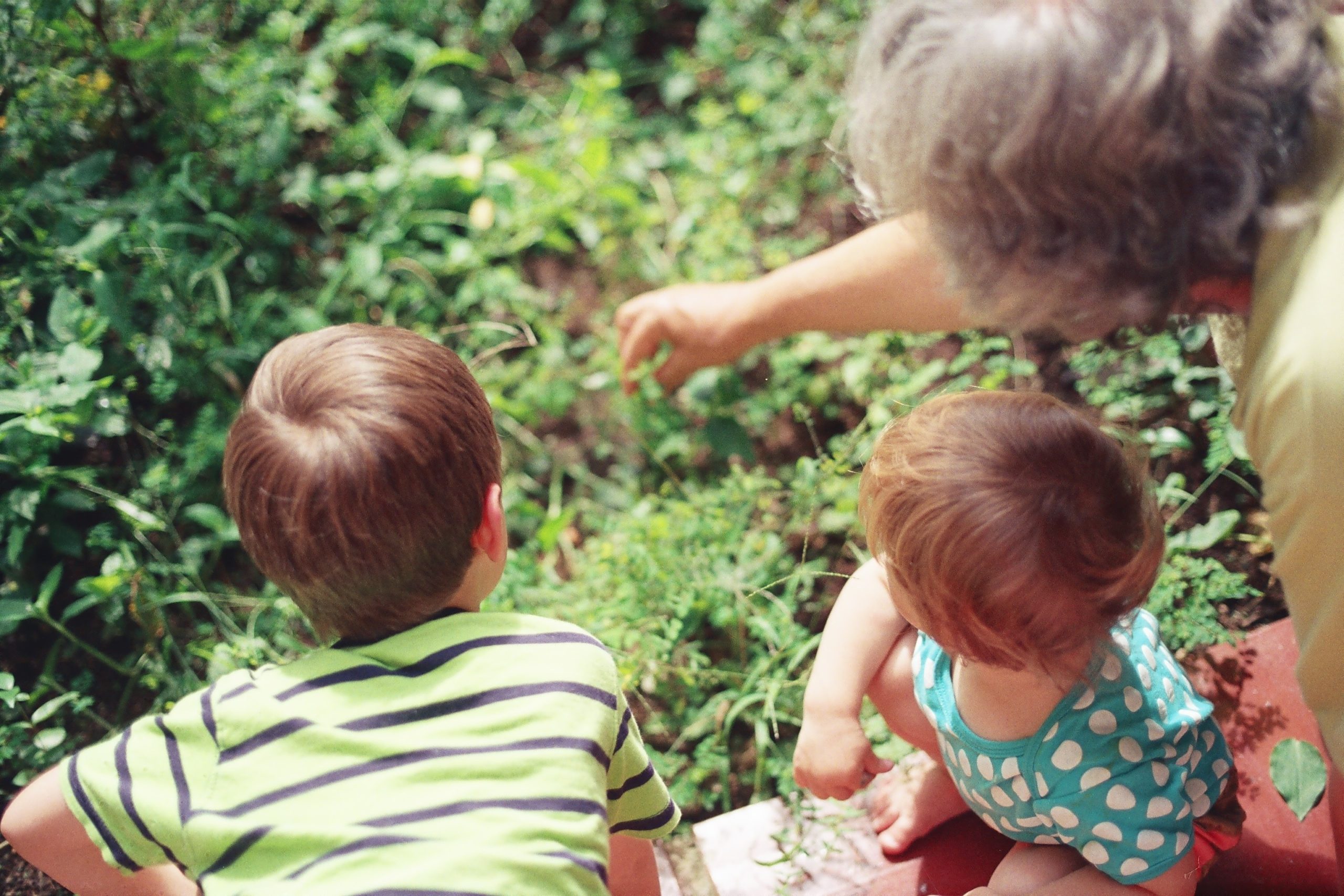Often a child’s first direct dealing with death involves the loss of a grandparent. A child’s reaction can be influenced by age and his or her own personal relationship with the grandparent. A grandparent often plays a special role in our child’s life, whether he or she cares for our child regularly or only on special occasions, or just communicates via letters, email, or phone. Dealing with the loss of a grandparent can be difficult, but it can also offer our child an opportunity to grow in maturity and understanding. Death is an inevitable part of life and helping our child navigate the loss of a grandparent, at the same time we are navigating the loss of a parent, can be complex and delicate.
If your child is a toddler it is important to remember that toddlers can’t understand the concept of death or even that they will never see someone again. But, toddlers are tuned in to their parents’ feelings, so your child most likely understands that something sad has happened. It is important to acknowledge this and to focus on addressing your young child’s feelings. You can say something like, “Nana isn’t here and I miss her too.” If your child asks questions, you can explain that Nana is not coming back, that she died, which means that her body stopped working. If your toddler asks if he or she will die, you can explain that his or her body is healthy and strong so he or she is not going to die now.
An older child has the capacity to understand more about death and dying. A School-age child may ask questions. It would be important to answer his or her questions, keeping the answers brief and simple, while being honest, and recognizing that you don’t have to provide all of the answers. Allow the child to grieve, understanding that each child will grieve in a different way and for some, grief may be delayed. A child tends to grieve differently than an adult and he or she can be upset about Pop Pop in one moment and then play Legos the next. Be patient and consistent with answers, even if a child asks the same questions over and over. Listen to the child carefully to assure that he or she does not feel at fault, and if this is the case, reassure that he or she is not at fault. It is fine for you to express your own authentic grief in front of your child. Grieving is a normal part of life and it can be helpful for your child to see that you can be sad too. And, you can reassure your child that you are still there to parent even as you mourn.
Elizabeth Kubler-Ross has researched the stages of grief and has found that people tend to move through 5 stages of grief: denial, anger, bargaining, depression, and acceptance. These emotions, however, do not always arrive in a linear fashion and they may come and go at different times. College students are usually saddened by a grandparent’s death, but some young adults may be relieved if their loved one had suffered from a long illness. Others might feel angry that their grandparent is no longer there for them. It is not uncommon for college students to lose at least one grandparent during their college years. In addition to grieving the loss of a grandparent, college students may face the dilemma of whether or not to take time off to go to the funeral. It would be helpful to be flexible about attendance at the funeral, and if your child wants to attend, to help them navigate the process of taking some time off (i.e., contacting the dean of students/teachers, making alternate arrangements for possible exams or deadlines for papers, etc.). In addition to dealing with their own grief, college students might worry about their parents’ response to the death of a parent. It would be important to reassure your child that deep sadness is a normal reaction, and that your joy will return in time.
Helping your child, no matter his or her age, navigate the death of a grandparent is an important parental role. Remember that you don’t have to be the perfect parent. Allow for your own grief. Keep your child’s developmental stage in mind and try to be as available as you can. Don’t hesitate to ask for help from your friends and relatives to provide support as you mourn and travel this circle of life.
Marcia Kaufman, Ph.D.
Licensed Clinical Psychologist
Portions of this blog were taken from the following sources: www.childcarerrnc.org; Helping your College Student Cope with a Grandparent’s Death, Psychologytoday.com, December 3, 2017; www.verywellfamily.com; www.parents.com; www.grandmagazine.com; www.theguardian.com.

